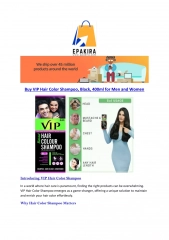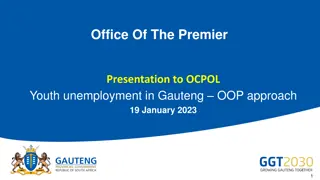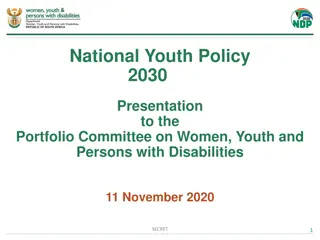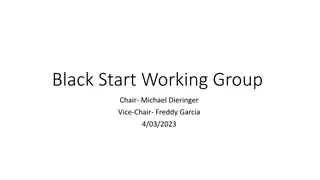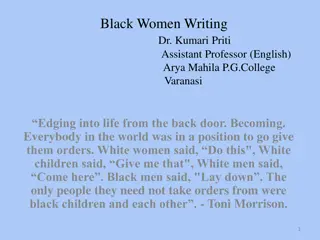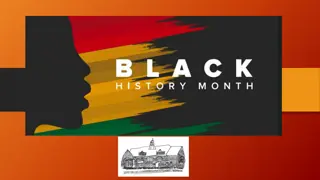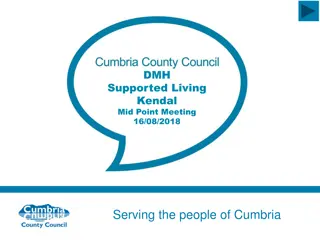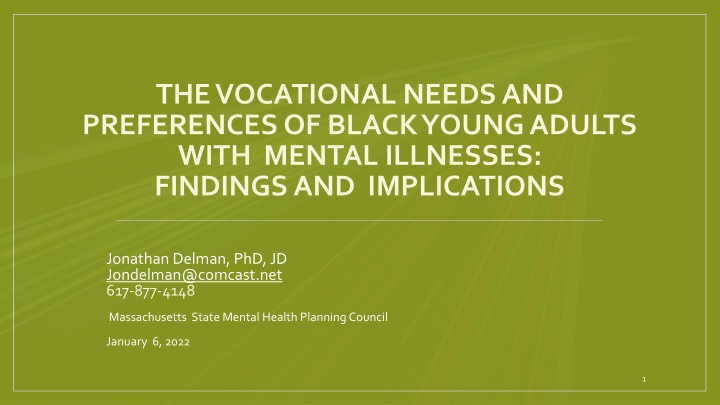
Vocational Needs of Black Young Adults with Mental Illnesses
This presentation explores the vocational needs and preferences of Black young adults with mental illnesses, addressing barriers and facilitators to positive vocational development and highlighting the importance of vocational services in improving quality of life for this population. The study employs qualitative methodology and frameworks such as Socioecological Theory and Critical Race Framework to shed light on this important issue.
Download Presentation

Please find below an Image/Link to download the presentation.
The content on the website is provided AS IS for your information and personal use only. It may not be sold, licensed, or shared on other websites without obtaining consent from the author. If you encounter any issues during the download, it is possible that the publisher has removed the file from their server.
You are allowed to download the files provided on this website for personal or commercial use, subject to the condition that they are used lawfully. All files are the property of their respective owners.
The content on the website is provided AS IS for your information and personal use only. It may not be sold, licensed, or shared on other websites without obtaining consent from the author.
E N D
Presentation Transcript
THE VOCATIONAL NEEDS AND PREFERENCES OF BLACK YOUNG ADULTS WITH MENTAL ILLNESSES: FINDINGS AND IMPLICATIONS Jonathan Delman, PhD, JD Jondelman@comcast.net 617-877-4148 Massachusetts State Mental Health Planning Council January 6, 2022 1
Acknowledgements The contents of this presentation were developed as part of the Switzer Research Distinguished Fellowship Program, which is funded by the National Institute on Disability and Rehabilitation Research (NIDILRR) grant 90SFGE0001. NIDILRR is a Center within the Administration for Community Living (ACL), Department of Health and Human Services (HHS). The content of this presentation does not necessarily represent the policy of NIDILRR, ACL, HHS, and you should not assume endorsement by the Federal Government. 2
Research questions: What are the barriers to and facilitators of positive vocational development for Black young adults with serious mental illnesses (SMI)? What are the vocational needs and preferences of Black young adults with SMI? 3
Why conduct this study? Work is good, can be therapeutic, and ultimately improves quality of lives. Vocational services promote work [in general] Stand alone Integrated into clinical services Research on vocational racial disparities Black people, with disabilities are less likely to be screened in for vocational services, and if screened in less likely to receive job training or achieve gainful employment. More likely to find mental health and vocational services unappealing. Greater difficulty finding and holding jobs and completing school. No systemic studies on barriers and facilitators to vocational growth for this Black people with mental illnesses, nor on their specific cultural needs. 4
Methodology Qualitative study Participants Black young adults Aged 18 30 SMI Vocational Services (public) Data Collection Interview guide Purposive approach assure sub-group representation (e.g., Social Security status) Offered a $25 gift card Conceptual Frameworks Socioecological Critical Race Theory 5
Public Health Critical Race Framework (Chandra Ford) 1.Race Consciousness: explicit acknowledgment of race and racism in the lived experience, such as systemic discrimination , including higher rates of criminal justice involvement, poor public school systems, etc. 2.Contemporary orientation: describing racialized phenomena in the present day s context, rather than relying only on historical underpinnings 3.Centering the margins: highlighting the perspectives of a socially marginalized group, rather than dominant race or culture, stories, 4.Theory-informed action or praxis Ford and Airhihenbuwa (2010) ; AJPH; Social Science and Medicine 7
DEMOGRAPHICS Currently working with a vocational counselor As part of treatment team Independent of a treatment team *0 Has worked with a vocational counselor as an adult (age 18 and over) 18 (64%) 7 (25%) 11 (39%) 25 (89%) Interviews completed 28 Male 18 (64%) Educational status (highest) Some high school High School graduate Associate s degree Job training program or certification 4-year college graduate Mental health diagnosis (primary) Schizophrenia/Schizoaffective Bipolar/Depression 6 (21%) 12 (43%) 4 (14%) 2 (7%) 4 (14%) 16 (57%) 12 (43%) In mental health treatment: First episode program, young adult focus Other health clinic that includes psychiatric care 21 (75%) 8 (29%) Current vocational status Employed Full-time Part-time School (post-secondary or professional/trade) Unemployed and not in school 11 (39%) 2 ( 7%) 9 (32%) 7 (25%) 10 (36%) 13 (46%) Recipient of Social Security benefits (SSI/SSDI) in last 12 mos. 18 (64%)
Themes Vocational counselors who are open minded, provide service options, and understand the culture of Black young adults with SMI are the most qualified to engage with and support their vocational growth 1. 2. At the workplace, an attentive and allied supervisor can facilitate job success for Black young adults with SMI The presence of Blacks in positions of authority and as peers in school and at the workplace can establish a racial/ethnic climate that significantly improves the vocational growth of Black young adults with SMI 3. Common and regular experiences of discrimination can greatly diminish the vocational confidence and hopes of Black young adults with SMI 4.
Theme 1. Vocational Counselors Who Are Open- Minded, Relatable, and Provide Service Options in Accordance With Client Preferences The counselor is White. He s low key. Doesn t push. Doesn t tell me what to do. He asks me about my life. After a few months of just talking, we began to start talking about whether I should work. (A4)
Theme 2. Workplace Supervisors Who Are Attentive and Allied She told me that when she started here, in my position, it was tough for her too. (A27)
Theme 3. The Presence of Black People in Positions of Authority and as Peers in Postsecondary School and at the Workplace I went to class but didn t get to know many [White] students there. I said hello, but I just wasn t comfortable talking about myself. I have spent time in jail and psychiatric facilities. (A15)
Theme 4. Common and Regular Experiences of Discrimination I walk out of here and there are cops in CVS and Walgreens. Wherever I go there might be cops. Do you know what it s like? You can t know what it s like. (A6)
Moderating Factors Facilitators Barriers Family Support Criminal Justice Involvement Attentive/supportive mental health clinicians
Future Directions: Alternatives and priorities Counselor-client racial matching . Cultural competency/humility skill building Learning to broach . Cultural tailoring of best practices for vocational counseling to better suit the needs of Black patients with SMI. Dismantling racial disadvantage within field of psychiatric rehabilitation. Critical Race Theory as conceptual framework; Community driven research and development. (Participatory Action Research) 16

